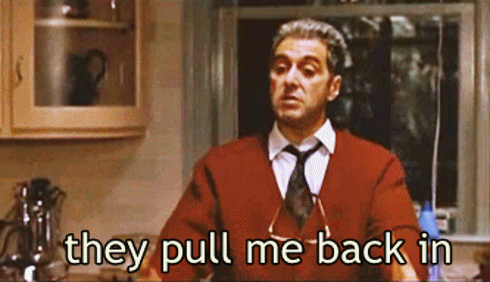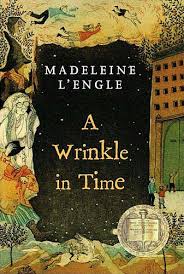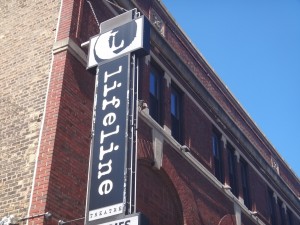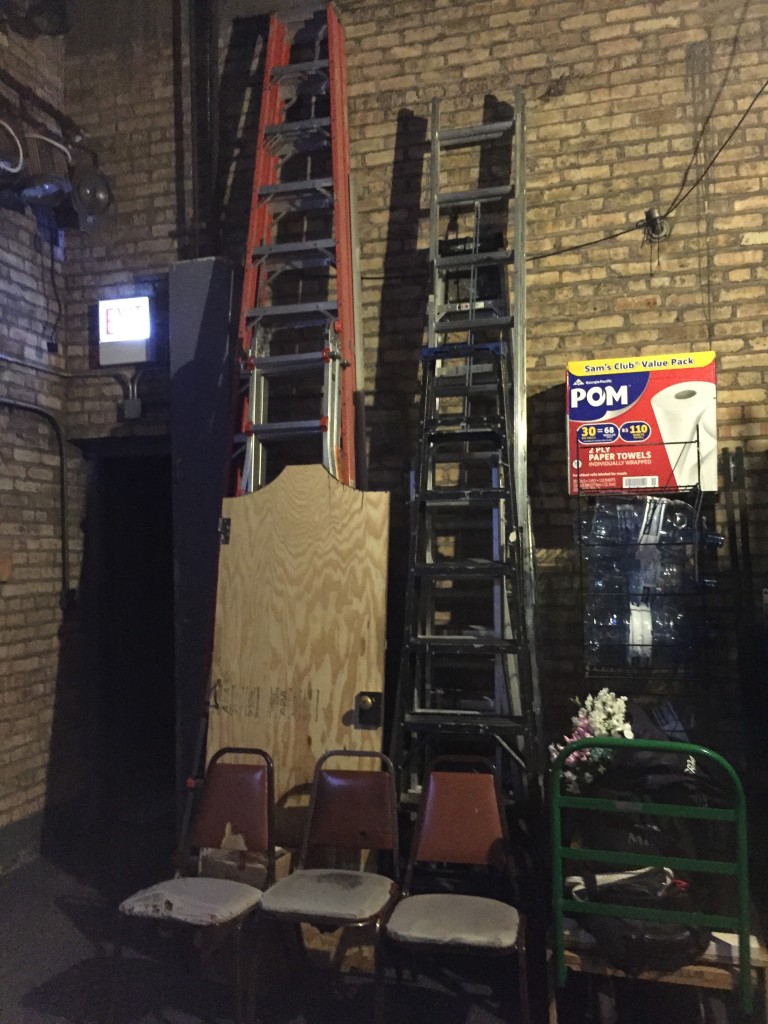In the Room Where it Happens— Chicago Theater Auditions
Just when I thought I was out…

I’m in Chicago, sitting in a frigid theater in the middle of the afternoon at the end of summer, watching a steady succession of actors strut and fret their way across the stage while their photographic counterparts smile beatifically up at me in stacks piled up in the aisle, and I suddenly startle myself: Wait, is this my real life? Do I really have a house and family in Los Angeles? Have I ever left Chicago?

I’m in the middle of a round of auditions for A Wrinkle in Time (I’m revamping my previous adaptation) at my old stomping grounds at Lifeline Theatre, and it feels like I never left. It’s eerie how smoothly I have slid into the production process after more than fifteen years away. Fifteen years!

Some of that ease comes from the director, ensemble member Elise Kauzlaric, who invited me to be a part of casting. She’s been quite welcoming to an old-timer emeritus member like myself. Elise just directed the wildly successful musical adaptation of Northanger Abbey and is turning her laser focus onto Wrinkle. I’m lucky to be in such capable hands.

Another part of my smooth integration is that I had, before moving to L.A., spent over a decade working in this old converted power station, a second home all those years. I have hung lights, torn tickets, broken sets down, mopped sewage, bundled group mailers (60025 is Glenview, yah?), slept under costume racks, and created some damn fine theater between these bricks walls along the way. Yes, there has been some renovation, there are many photos on the wall of productions I haven’t seen, and unknown staff (staff!) bustling about the building, but other than that it’s mostly the same.

Being emeritus means never having to say “Who’s coming for workday?”
The same could be said for casting. I’ve noticed a much more concentrated effort at Lifeline to find a diverse array of performers, which is an excellent development, but the casting sessions themselves are pretty much what I remember: stacks of headshots, audition sides scattered everywhere, actor after actor revealing themselves: striding in, displaying nervous tics, commanding the space or yielding to it, making magic happen or making the same damn mistakes they always make.
Oh, actors…
If you want to learn how to audition, sit in on a casting session, and you will be amazed. What works, and what doesn’t, is apparent almost immediately. As an actor, you may not be intrinsically right for the role, you may not have the skillset we require, you may be just a touch less perfect than an actor we just saw, and there’s nothing you can do about that. But there are simple mistakes that that will sink an actor’s chances and are so very easy to avoid. I say this knowing full well that I’ve probably committed most of these transgressions myself. Let’s review a few of them, shall we?:
- Show your face. This may be obvious, but you have no idea how many actors decide to look down, or away, or, God forbid, upstage. The eyes tell us what’s going on, that there’s emotions and decisions and life going on in your head. I don’t care if the stage direction says “Averts eyes” or “Shields face” or “Covers his snout with his paws.” Find a way to open to the audience. You can look out while looking away. Fourth wall, remember?
- Go forward, not back. Making the decision to be active is almost always more interesting than deciding to retreat. When you decide that your character doesn’t want to be part of the scene onstage you drop out of sight. We forget to watch you. Choose to connect, even if it’s only to the audience.
- There is a power in stillness. You have no idea how many people just wander about the stage, confusing random movement with character choices. Quirky head wagging, gliding, and windmilling arms, especially during your partner’s lines, are only distracting and will make us want to sit on your head. Bold choices are lovely, but only if they’re supported by text or emotional underpinning. And don’t give away your authority by the constant twitching of your hands and/or shoulders. We will worry that you are developing Tourettes.* *This does not apply if you are reading for a character who is developing Tourettes.
- Stop with the jokes. There’s such a thin line between charming and tiring. One or two snarky comments or quips in between readings can be funny and charming, but more than that and you might as well start planting red flags all over your face. At best, it seems like a nervous tic. At worst, it’s annoying, not the impression you want to give in your ten minutes with us. We should be concentrating. You’ve got a job to do. We have a job to do. Let us do it.
- React. Engage. Yes, you’ve rehearsed a stunning bit of action (or reaction) by yourself in the lobby that is sure to let us know you are intelligent and creative and have illuminated the text in an original way. Meh. If it doesn’t fit with what is happening at that moment on stage, we can tell. What we’re looking for, are yearning for, is a spark between actors on stage that carries the text from the illustrative to the transformative. It makes us see the scene in a new way because you’re discovering connections and nuances that aren’t explicitly in the text, but that develop spontaneously from your unique self playing off of another unique self. Right in front of us. We’re looking for the crackle of the new, and it’s thrilling when it happens. We will always talk about it later. Yes, sometimes you get a dud of a scene partner, but try to play with what you’re given. This also applies to solo work—let us see the discovery happen at the moment. DO NOT, however, let this lead you to not—
- Pick up the pace. Characters can think a lot faster than you think they can. A LOT. How many pauses do you really have in in real life? Stopping every other moment to react, to think, just lets all freaking life leak out of a scene. Drive to the end of the line. (Try saying all of the above with a pause between each punctuation mark and you’ll see what I mean). On the other hand—
- Don’t go too fast, either. You may have the emotional truth behind a speech down pat, but if it all comes out in one rush, without shade or variation, it becomes a monochromatic blur that we stop listening to. Don’t think of that speech as a speech; it’s a series of discoveries (that doesn’t mean pauses: see above) and corrections to those discoveries, that are happening in the moment. The playwright doesn’t just let a character blather on without a reason (hopefully); every line is a little journey unto itself. (Just read #6 & 7 on a loop and you should be just fine.)
- Be a person. Believe it or not, there may be one or two actors besides yourself that would be absolutely perfect in the role. Sometimes, it comes down to the question: Do I want to spend 4-6 weeks in a rehearsal room with this person? Are they going to grind my rehearsals to a halt with constant complaining or crippling insecurity? We’re making snap judgments at auditions, and if we get a whiff that you might be one of those “difficult” actors, it might prevent us from tossing your photo onto the callback pile. Be polite. Be friendly. We don’t want to hate you. We might even cast you.
Luckily, during the three days of Wrinkle auditions, Elise and I saw many actors who miraculously managed to avoid all these pitfalls and utterly captivate us. So many splendid Megs and Calvins and Witches of every varietal. I leave for Los Angeles inspired by what I saw and excited for what’s to be seen. Damn it, Lifeline, you’ve pulled me back, you’ve captured my heart. I’m doing theater again! As Mrs. Which intoned at the start of the journey:
Itt iss timmme.

Topics: A Wrinkle in Time • Auditions • Elise Kauzlaric • Lifeline Theatre




<3 fond memories too